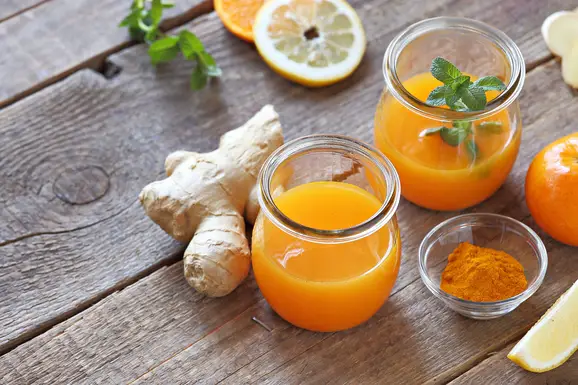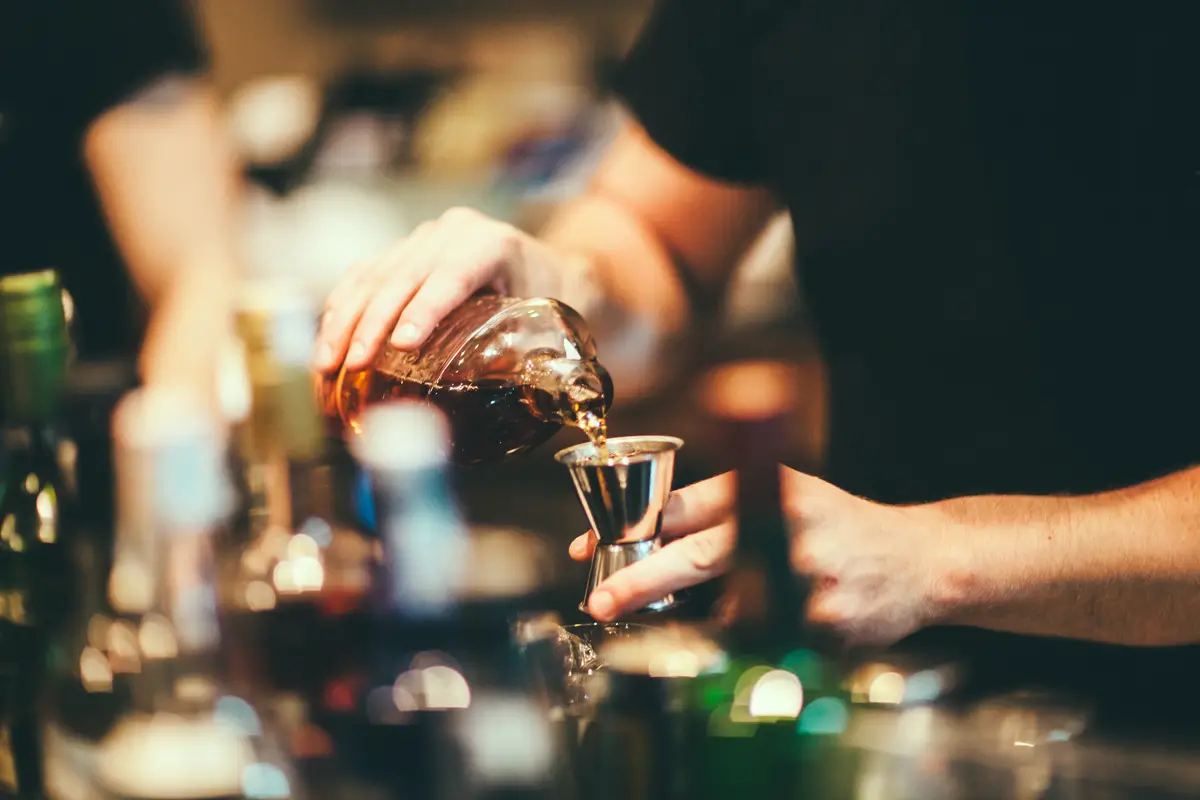The food and beverage industry is a vital part of the hospitality business. Just like any other sector, it is constantly evolving with new trends emerging to meet new customer preferences. Whether you want a career in food and beverage management or want to have a bar and restaurant in your hotel, staying up-to-date with the state of the industry and all the new beverage industry trends is important.
In this article, we’ll go over these trends, which take in innovative flavors, eco-conscious practices, technology’s impact and health-oriented options. We’ll also look at the kind of exciting roles you can expect to find in beverages and hospitality.
The vital role of the beverage industry in hospitality
The beverage industry plays a pivotal role in the world of hospitality and is a fundamental aspect of guest experience. Some of the more compelling reasons why the beverage industry is of paramount importance in the hospitality sector are outlined below.
- Elevating dining experiences: beverages complement food, improving guest satisfaction with paired wines, creative cocktails and other drinks
- Fostering social connections: bars and lounges are social hubs where an inviting ambiance creates a place where guests can connect and unwind
- Catering to diverse preferences: beverage menus accommodate varied tastes, offering options for all dietary preferences and cultural backgrounds
- Showcasing local culture: beverages often reflect local culture and traditions, adding a unique dimension to the guest experience
- Revenue generation: having a drinks offer contributes significantly to revenue
- Competitive edge: a distinctive beverage offering can set businesses apart, attracting discerning guests and improving a venue’s reputation.
If you want to learn how to handle high-end hospitality roles including in the beverage industry, one of the best ways to start is by getting a degree in hospitality. This will help give you all the skills and knowledge you need to manage hospitality venues, such as hotels, restaurants and bars.
In our world-leading program you’ll learn from industry leaders in the beverage industry while expanding your experience through prestigious professional placements.

Overview of beverage trends
In the ever-changing drinks industry, businesses and consumers are always looking for the next big concept. Whether it’s novel flavors pushing boundaries or healthy alternatives meeting wellness goals, there are always new areas to explore. The wave of innovation propelling these changes has influences that include consumer preferences, technological advancements and sustainability objectives. Some of the main recent trends in terms of product development are outlined below.
Functional waters
These products aim to pack more than just hydration into each sip and go beyond simple coconut water or flavored options. Consumers now want ingredients such as vitamins, minerals and antioxidants in their beverages.
Innovative alcohol flavors and mocktails
Innovation seems set for continued popularity in the cocktail landscape. As mixologists delve deeper into uncommon flavor profiles, such as savory, smoked or botanical, consumers have begun to embrace them. Meanwhile, mocktails are increasing in popularity as well. These are designed to deliver all the flavors of cocktails without alcohol.
Hybrid beverages
New, hybrid beverages are pushing boundaries and emerging as a fast-growing sector as companies capitalize on cross-category product innovation. These mixed-format concoctions combine two or more types of beverage, blurring lines between soda, tea, coffee, sparkling water, or juice formats and offering multi-sensory drinking experiences.
Various coffee formats
In a sector known for reinvention and adaptation, coffee represents another emerging beverage trend in the form of several different formats. From iced coffee to pre-packaged specialty drinks, there is a growing call for exciting new coffee-based drinks.
Plant-based and dairy-free alternatives
Having firmly established themselves in the beverage industry, plant-based alternatives indicate a shift toward more inclusive dietary choices that cater to a diverse range of needs. Their development points to a promising future, they are often more sustainable alternatives and they are set to expand significantly.
Sugar reduction
The global soft drink manufacturing industry is experiencing a transformation due to efforts to reduce sugar consumption among the general public and, in some cases, due to legislation. In a move away from traditional options, manufacturers are now looking at suitable sweetener substitutes and exploring alternatives to sugar in their offerings.
Regional beverage trends

The beverage landscape worldwide is witnessing notable shifts and trends in response to evolving consumer preferences and cultural influences. Below, we’ll take a glimpse into some of the top beverage trends in various regions.
Top beverage trends in the United States
The beverage industry is undergoing a transformation in the US, driven by the growing emphasis on health and wellness. While sports drinks such as Gatorade remain popular, there is growing demand for low-sugar and zero-calorie options. Green tea, with its well-known health benefits, is gaining popularity. CBD-infused drinks are also surging in popularity, especially in states that have legalized cannabis. In the alcohol segment, craft beers continue to flourish, while hard seltzers, led by brands such as White Claw and Truly, are rapidly capturing market share.
Top beverage trends in Asia
Asia’s beverage trends reflect a fusion of traditional flavors with modern processing techniques. Bubble tea, originally from Taiwan, continues to be a regional favorite, while Soju, a Korean spirit, is gaining traction not only in South Korea but also across the continent. Plant-based milk alternatives, such as almond milk, are also gaining ground due to a high prevalence of lactose intolerance and the preference in many countries for healthy alternatives to dairy products.
Top beverage trends in the Pacific Rim
Australia’s diverse beverage scene offers a wide range of options, from local wines and craft beers to non-alcoholic choices with natural ingredients. Wines from this region are renowned for their quality and are enjoyed globally. Craft gin, favored by millennials who drink cocktails with high-quality ingredients, is also on the rise. Meanwhile, a focus on health among the population has lead to increased consumption of kombucha.
Top beverage trends in Europe
Europe boasts a rich beverage tradition, blending time-honored classics with innovative newcomers. Belgian beer enjoys unparalleled fame worldwide, with fruit lambics and Trappist brews in high demand. Genever, a juniper-flavored spirit, is experiencing a resurgence, aligning with the preference for hand-crafted and traditional beverages. Herbal liquors and beers continue to be popular while organic soft drinks capture taste buds that want reduced sugar content combined with exciting flavors.
Top beverage trends in Southern America
Brazil’s vibrant culture is reflected in its diverse beverage offerings. Cachaça, the national liquor, is prominently used in cocktails. Yerba Mate, known locally as Chimarrão or Tereré depending on how it’s served, is a popular choice. Acai berry juice is also gaining recognition globally, thanks to the increasing interest in superfoods. Meanwhile, Chile is a widely recognized global wine producer using grape varieties such as Carmenère. Pisco, a kind of grape brandy primarily from Peru, is still popular in the distilled spirits market. Thanks to favorable geographical factors, artisanal beers are gaining popularity too, especially in the Patagonia area, which provides splendid conditions for hop cultivation.
Top beverage trends in Canada
In Canada, craft whisky and beer are popular as are non-alcoholic versions of various liquors. Mocktails are gaining momentum as consumers seek healthier options without relinquishing taste or experience. Canadians are also enthusiastically drinking ‘hard’ or alcoholic soda.
Environmental impact of the beverage industry
The drink trends currently influencing 2023 and 2024 underscore the growing importance of sustainability in hospitality, with consumers becoming increasingly mindful of their ecological footprint. Let’s look at a couple of key environmental aspects of the drinks industry, waste and sustainable manufacturing.
Reducing waste and packaging
In response to consumer demand, many beverage companies have started using biodegradable materials or ‘minimalist’ packaging to reduce landfill. There is also an increasing emphasis on developing reusable containers, including refillable bottles and schemes encouraging customers to reuse their drinking vessels.
Sustainable manufacturing practices
Sustainable manufacturing begins with eco-friendly raw material sourcing, often favoring local procurement to reduce carbon emissions from transportation. This is a major factor, as drinks manufacturers often ship specialty drinks a long way around the world. Another vital aspect involves using organically grown or Fairtrade materials and promoting responsible farming practices that safeguard biodiversity. Water conservation is a growing trend, with the drink industry adopting processes that minimize water use – vital due to the high use of water in drinks manufacture. Employing energy-efficient machinery and renewable energy sources further raises sustainability standards in modern beverage production.
Impact of technology on the beverage industry
Technology within the hospitality industry is constantly evolving and, as a part of it, the beverage industry is changing rapidly. Traditional practices are being replaced with tech-centric approaches that improve efficiency while delivering bespoke consumer experiences. This digital age has ultimately ushered in a new era for drink trends, which we’ll look at below.
Online ordering systems and delivery services
Transitioning to online platforms has become essential for the survival of drinks businesses. These platforms provide opportunities for beverage companies to showcase their brand to an extensive audience, magnifying market reach beyond their physical locations. Paired with prompt delivery services, businesses can ensure they are a reliable supplier and seller, meaning that they can ensure repeat business.
Robotics and automation
In recent years, pioneering brands have looked towards robotics and automation to optimize their business operations, especially in mixing, bottling, and packaging. This strategy improves consistency in product quality and allows them to realize other significant benefits, such as cost-efficiency by minimizing waste, which is important in the highly competitive drinks industry.
Hospitality careers in the beverage industry
From bartenders crafting artisan cocktails to sommeliers curating wine lists, people in the beverage industry play a crucial role in enhancing the dining and hospitality experience. With new products, non-alcoholic drinks, and other developments in the industry, there is a growing need for talented people who can drive the sector forward. Where modern beverages are served in the hospitality business, there are job roles such as:
- Beverage manager
- Brewery or distillery tour guide
- Beverage educator or trainer
- Food and beverage consultant
How to start a career in the beverage industry
The beverage industry offers many rewarding career paths that allow you to share your love for drinks with others and be an integral part of the hospitality experience. To pursue a successful career in it, you’ll need a combination of formal education, on-the-job training, and a genuine passion for drinks. A degree in hospitality can also help you get to grips with parts of the beverage industry, such as bar management or supply management for hotels. When you’re looking for a degree course, be sure to pick one where you can find a fruitful internship experience in the food and beverage sector.
From the basics of hospitality to skills in managing food and beverage businesses, our degree provides the essential ingredients for a successful career.

Conclusion
The beverage industry reflects a dynamic interplay of consumer preferences, culinary innovation, and a growing emphasis on health and sustainability. From the rise of craft cocktails and artisanal coffee to the surge in demand for plant-based options and health-conscious beverages, it’s clear the beverage industry is meeting the diverse and evolving needs of today’s consumers. Whether you want to start a career in food & beverage management or open your own hotel, it’s important to stay ahead of beverage industry trends. If you want to succeed in the beverage industry and contribute to its rapid growth and popularity with customers, see how a hospitality degree from a renowned school such as Les Roches can help you pursue this career path.
Main image credit: Rafael Elias / Moment via Getty Images




